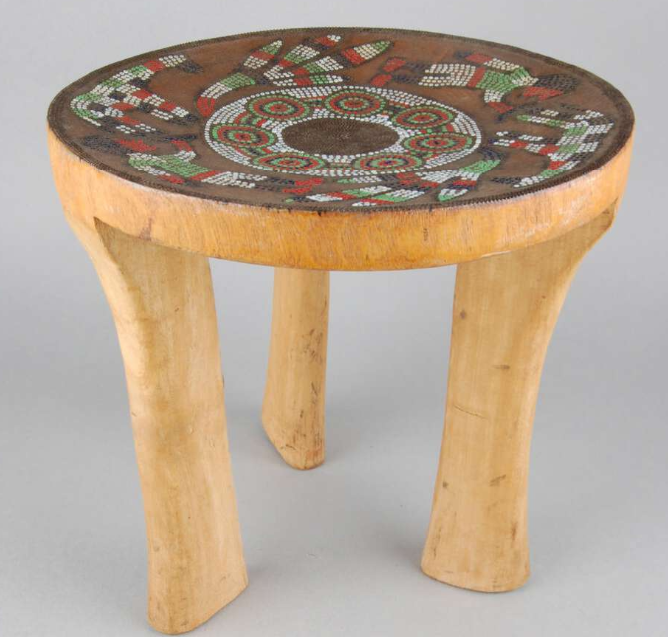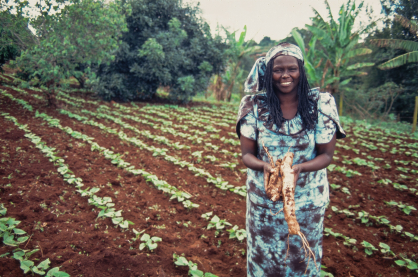March 8th, is an international day designated by the UN since 1977, commemorating the contribution of women to our world. Coincidentally, March 3rd is designated by the African Union since 2002, and is celebrated as Africa Environment Day. The latter celebration happens to have another name as well: “Wangari Maathai Day” as a tribute to the late environmentalist and first female African Nobel Peace Prize winner, Wangari Maathai of Kenya (1940–2011). These two interrelated events – environment and women – prompted me to write this article on my personal admiration of Professor Maathai’s contribution, not least as an inspiration to us all.
Although we have made progress in acknowledging women’s contribution, many exemplary heroes are still, if at all, in the periphery of many people’s thoughts. I must admit, I hadn’t heard of Professor Maathai until the Nobel Peace Prize of 2004 propelled her to international recognition. I then got to know about her life and work through her books and attending her talk at the House of Parliament in London. With rising concern in environmental issues and the need for scientists to be active in matters of politics, a few aspects of Wangari Maathai’s life are worth mentioning.
Personal sacrifice
Wangari’s story shows a person who fought against and overcame societal prejudice because of her gender (being a female in a highly patriarchal society), ethnicity (not favoured with the leadership at the time), cultural setting (being an independent young scientist in a traditional work environment) and time (where educated women were rare) and finally, political atmosphere (when authoritarian leadership was the norm). Despite this, she succeeded in her academic pursuits, following up opportunities to study in the West, secure a prestigious job in Kenya and still put local population needs at the heart of her work at grassroots. Her non-conformity meant she paid dearly and personally for her choices – from beatings at rallies, political isolation, losing her job, becoming bankrupt, family break-up, and even losing her personal freedom by going to jail. Yet she seems to have come out with no bitterness and resumed her peaceful struggle, eventually reaching greater heights, including government minister when democratic reforms came. She made environmental issues not only a concern of Kenya’s but also Africa’s concern, through the Green Belt Movement and her ambassadorship to various organisations.
Green Belt Movement
Arguably considered her greatest legacy, is the Green Belt Movement. A tree planting movement that stayed close to Wangari Maathai’s heart, having grown up alongside nature in the rural highlands of Kenya. Established in 1977, it is a grass-roots movement attempting to tackle the deforestation that was threatening the means of subsistence of the agricultural population. It was aimed at women, encouraging them to plant trees in their local environment with a small monetary reward. In her autobiography, she dedicates an aptly named chapter “Foresters without diplomas” on how it came about, citing the ups and downs. Though the Green Belt Movement’s main aim was to introduce ecological thinking, it also empowered communities by organising civic and environmental education opportunities. This eventually came at loggerheads with local political power’s role on issues of land grab and the destruction of urban parks.
Her Nobel peace prize recognition summarises her contribution in this: “Maathai's mobilisation of African women was not limited in its vision to work for sustainable development; but saw tree-planting in a broader perspective which included democracy, women's rights, and international solidarity.” The success of the movement can be shown with its ethos that has endured and even been copied in other African countries.
- Check out this video, The woman who planted 50 million trees, on BBC Ideas
Vision on environment, development and governance
Wangari wrote a number of books on her views of environment and development, shaped by her work as a scientist, activist, politician and as a woman. This was a rare foray for people from that region and time.
A theme that stands out for me throughout her writings and talks is where she discusses the need for a holistic look on embracing culture, governance and harnessing social movement. I particularly like her insistence on leadership accountability for good governance, for both people and nature. I particularly like this quote from her book “The challenge for Africa: a new vision”, when she describes this stool:
 Three-legged carved wooden stool with circular seat
Three-legged carved wooden stool with circular seat
“My philosophy in development, is like the traditional African stool, which is comprised of seat and three legs. The first leg represents democratic space, where rights – whether human, women’s, children’s or environmental – are respected. The second leg symbolizes the sustainable and accountable management of natural resources both for those living today and for those in the future, in a manner that is just and fair, including for people on the margins of society. The third leg stands for what I term “cultures of peace”. These take the form of fairness, respect, compassion, forgiveness, recompense and justice.
The three legs of the stool support the seat, which in this conception represents the milieu in which development can take place. Citizens feeling secure that the three legs are in place, that their country has robust democratic principles, equitable distribution of resources and strong cultures of peace can be educated, productive and creative. A secure seat also provides the environment in which a government can receive funds from multilateral agencies, lending institutions or private donors and use them accountably and responsibly – free of corruption – for the benefit not of the few but of the many.
Lastly, just as the African stool is made out of a single block of wood, each leg, or pillar is reinforced by the others and formed from the same grain, so the issues must be addressed together and simultaneously.” Maathai (2009, p56–57)



Rate and Review
Rate this article
Review this article
Log into OpenLearn to leave reviews and join in the conversation.
Article reviews